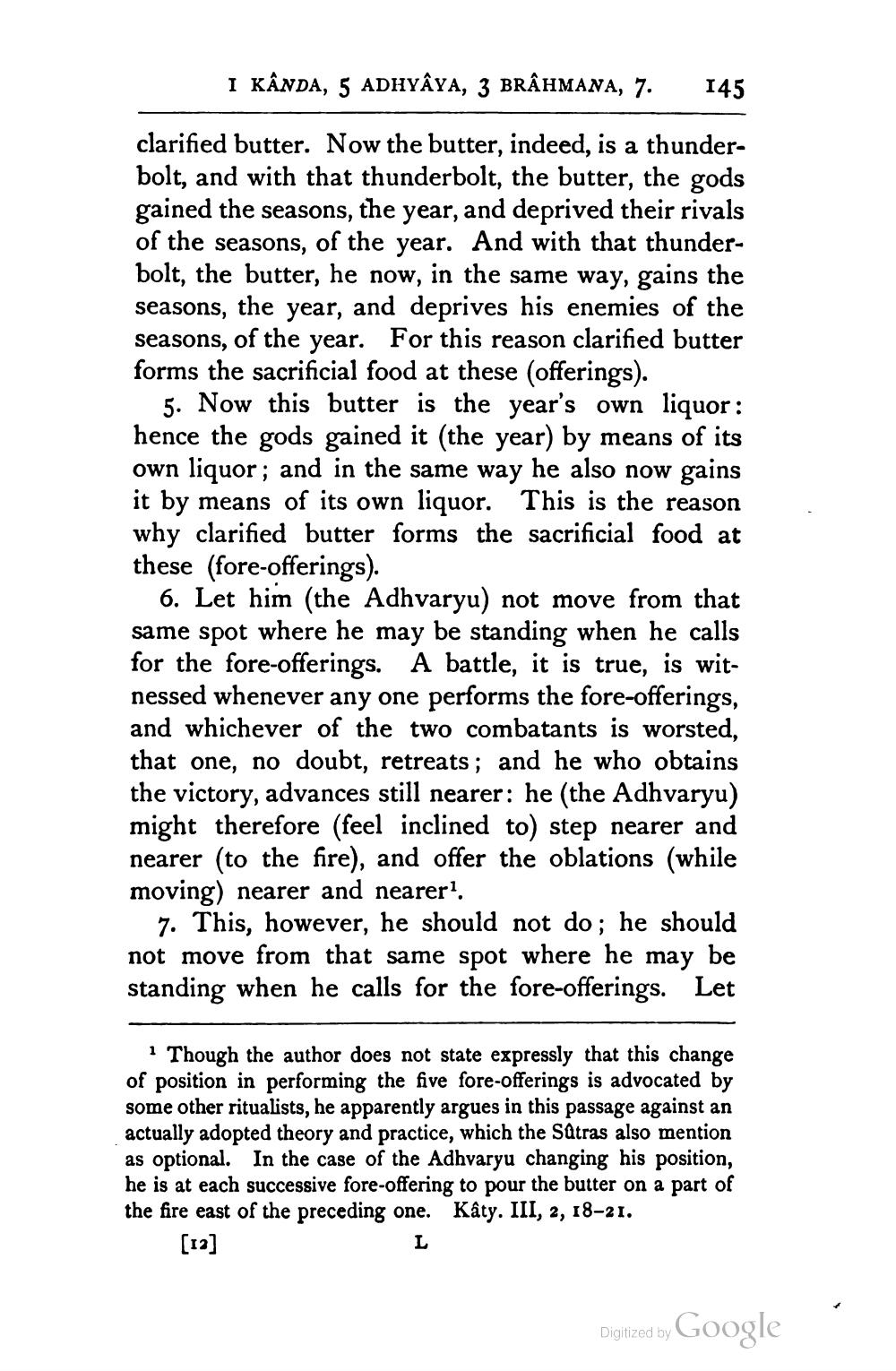________________
I KÂNDA, 5 ADHYAYA, 3 BRÂHMANA, 7.
145
clarified butter. Now the butter, indeed, is a thunderbolt, and with that thunderbolt, the butter, the gods gained the seasons, the year, and deprived their rivals of the seasons, of the year. And with that thunderbolt, the butter, he now, in the same way, gains the seasons, the year, and deprives his enemies of the seasons, of the year. For this reason clarified butter forms the sacrificial food at these (offerings).
5. Now this butter is the year's own liquor: hence the gods gained it (the year) by means of its own liquor; and in the same way he also now gains it by means of its own liquor. This is the reason why clarified butter forms the sacrificial food at these (fore-offerings).
6. Let him (the Adhvaryu) not move from that same spot where he may be standing when he calls for the fore-offerings. A battle, it is true, is witnessed whenever any one performs the fore-offerings, and whichever of the two combatants is worsted, that one, no doubt, retreats; and he who obtains the victory, advances still nearer: he (the Adhvaryu) might therefore (feel inclined to) step nearer and nearer (to the fire), and offer the oblations (while moving) nearer and nearer1.
7. This, however, he should not do; he should not move from that same spot where he may be standing when he calls for the fore-offerings. Let
i Though the author does not state expressly that this change of position in performing the five fore-offerings is advocated by some other ritualists, he apparently argues in this passage against an actually adopted theory and practice, which the Sätras also mention as optional. In the case of the Adhvaryu changing his position, he is at each successive fore-offering to pour the butter on a part of the fire east of the preceding one. Kâty. III, 2, 18-21.
[12]
Digitized by Google




